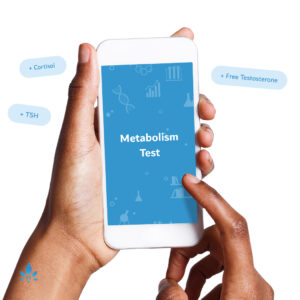5 Things to do When you Find out Your Child has Autism


Finding out your child has autism can be emotionally trying and overwhelming. After diagnosis, parents are likely filled with uncertainty and may wonder what to do next. The tips below are a starting point to help guide you in the right direction as your family navigates life with autism.
Seek out appropriate treatments
This is one of the first things to do, given the proven benefits of early intervention. Autism treatment usually consists of a structured, intensive therapy program (about 25 hours per week) and likely includes speech, occupational, and physical therapy, as needed.
Some therapy programs focus on behavioral treatment, which targets specific behaviors and skills. Other programs emphasize developmental therapies, which focus on natural play and development of social skills. Examples of common behavioral treatments include Applied Behavioral Analysis (ABA, sometimes called Lovaas), Discrete Trial Training, and Pivotal Response Training. Well-known developmental therapies include Floortime (sometimes called DIR) and Relationship Development Intervention (RDI).
There is no single treatment approach that works for all kids, but it’s best to look for programs that encourage parent involvement and set up clearly defined goals that are monitored frequently. Your child’s strengths and weaknesses as well as the established effectiveness of the program should be considered. There is no quick “cure” for autism—be wary of any program that says so. When evaluating treatment programs, start by looking for ones that are “evidence based.” This means they have been rigorously tested in well-designed scientific research studies and have been proven effective.
Address co-existing medical conditions
If your child has related medical issues, such as gastrointestinal problems, allergies, sleep disturbances, seizures, or ADHD, it’s important to manage them under a physician’s care. It will be much harder for a child to make progress in therapy if he or she is consumed with health problems, so the sooner these can be addressed the better.
Seek help with funding
All children under 3 years old automatically qualify for state-funded early intervention services. Also, check with your local and state agencies to find out about grant opportunities, scholarship funds, and Medicaid waivers. Social Security Disability Insurance and Supplemental Security Income may also be available.
Find a support network
Connecting with other informed parents of kids with autism is a good way to share information and gain emotional support. It can help with the sense of isolation that parents may feel. Autism support groups can be found through your local autism association.
Take time to grieve
It’s important to allow yourself the chance to experience the sadness, anger, and fear that will inevitably follow your child’s diagnosis in order to come to terms with your child’s autism and gain acceptance of it. You will be able to best help to your child when you have a healthy state of mind and have gotten a good emotional handle on the diagnosis.
As daunting as dealing with your child’s autism may seem, having an informed plan of action can make all the difference.
Sources:
- Autism Help
- My Child’s Been Diagnosed as Having Autism
- What Do I Do Now?
Autism Speaks - 100 Day Kit.
American Academy of Pediatrics - Autism Spectrum Disorders.
National Institutes of Health - Evidence-Based Comprehensive Treatments for Early Autism.
Rosenblatt, A., & Carbone, P - (Eds.)
- (2012)
- Autism spectrum disorders: What every parent needs to know
- Chicago, IL: American Academy of Pediatrics.
Powered by Bundoo®












































